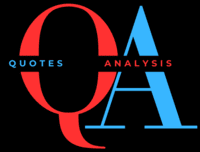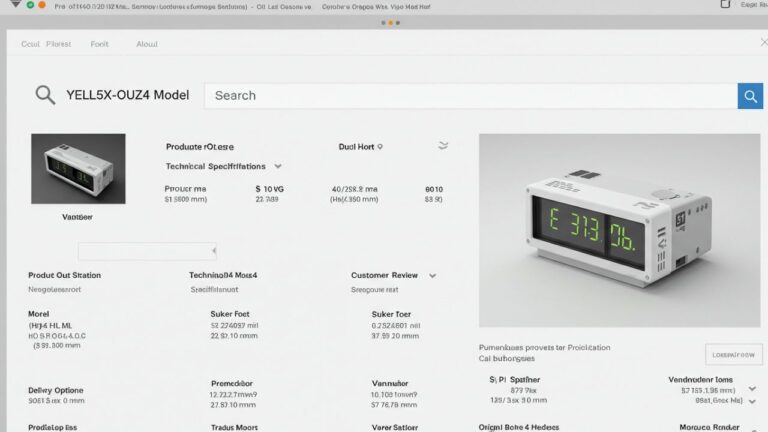
Crossword Clue Strategic
When it comes to solving puzzles, the phrase crossword clue strategic often stumps even seasoned solvers. While most clues follow straightforward logic, strategic clues demand more finesse, pattern recognition, and reasoning. They play with language, context, and misdirection. If you’re tired of staring at blank squares, this guide will change how you think. Dive into this full exploration of strategic clues and become the solver everyone envies.
🧠 Table of Contents
| Main Topics | Subtopics |
|---|---|
| Introduction | What Does “Crossword Clue Strategic” Mean? Why Strategic Clues Challenge Solvers |
| Anatomy of a Crossword Clue | Surface Reading vs. True Meaning Types of Clues |
| Strategy in Clue Construction | Wordplay Elements Clue Misleading Techniques |
| Common Types of Strategic Clues | Cryptic Clues Double Definitions Hidden Words |
| Understanding Wordplay | Anagrams Reversals Homophones |
| Spotting the Definition | Where to Look Clue Split Techniques |
| Decoding Clue Syntax | Punctuation Tricks Surface vs. Literal Meaning |
| Solving Process | Start with Fill-Ins Build From Known Letters |
| Contextual Thinking | How Themes Shape Strategy Clues in Cultural Context |
| Vocabulary Expansion | The Role of Obscure Words Crosswordese |
| Strategic Guessing | When to Trust Instincts Red Herring Removal |
| Practice Techniques | Daily Solving Puzzle Variety |
| Digital Tools & Apps | Cross-Referencing Helpers App-Based Practice Tools |
| Crosswords in Education | Learning With Word Games Vocabulary and Critical Thinking |
| Master Tips from Experts | Interview Highlights Favorite Techniques |
| Solver Mindset | Staying Calm Practicing Patience |
| Challenge Yourself | Set Personal Goals Compete with Friends |
| FAQs | Solvers’ Most Asked Questions |
| Conclusion | How to Grow as a Strategic Solver |
🧩 What Does “Crossword Clue Strategic” Mean?
The term crossword clue strategic refers to clues that require more than basic vocabulary knowledge. These clues need logic, interpretation, and lateral thinking. Unlike simple clues, strategic ones don’t give answers directly. They demand solvers decode hidden meanings, examine clue structure, and consider multiple angles before answering.
⚔️ Why Strategic Clues Challenge Solvers
Strategic clues often mislead. They present words that seem obvious but conceal alternate meanings. Solvers must interpret tone, context, and formatting. Because many clues play on idioms or wordplay, the surface meaning can misdirect. That’s exactly why these clues feel rewarding when cracked.
🔍 Anatomy of a Crossword Clue
Surface Reading vs. True Meaning
Clues usually present a natural-sounding phrase. However, that surface meaning often hides the actual definition or wordplay.
Types of Clues
Strategic clues may include cryptic, anagram-based, or double-definition types. Each type challenges a different part of your brain.
🎯 Strategy in Clue Construction
Wordplay Elements
Strategic clues use tools like synonyms, abbreviations, or puns. Every word might serve a specific clue purpose.
Clue Misleading Techniques
Clue writers mislead through grammar shifts, surprising punctuation, or multiple word meanings.
🔠 Common Types of Strategic Clues
Cryptic Clues
Cryptic clues follow unique patterns. They usually include a definition and a wordplay element disguised in clever language.
Double Definitions
These clues offer two separate meanings pointing to one word. Spotting this setup takes practice and mental flexibility.
Hidden Words
Some clues hide the answer in plain sight. A string of consecutive letters often solves the puzzle.
🧪 Understanding Wordplay
Anagrams
Clues might tell you to mix up letters. Words like “scrambled” or “twisted” often signal an anagram.
Reversals
A clue might instruct you to read a word backward. This technique appears often in down clues.
Homophones
Sound-alike clues require you to think phonetically. Phrases like “we hear” usually introduce homophones.
🎯 Spotting the Definition
Where to Look
In strategic clues, definitions often sit at either the beginning or end. Knowing this helps with elimination strategies.
Clue Split Techniques
Dividing clues into “definition” and “wordplay” sections allows solvers to focus their energy more effectively.
✍️ Decoding Clue Syntax
Punctuation Tricks
Question marks and dashes indicate wordplay. Ignore punctuation’s grammatical function and look at it as a hint tool.
Surface vs. Literal Meaning
The surface may seem like a story. The real meaning lies below, especially in cryptic puzzles.
🪄 Solving Process
Start with Fill-Ins
Begin with easy fill-in-the-blank clues. These offer context that helps decode strategic clues.
Build From Known Letters
Known letters from solved clues help test possible answers. Use them to reverse-engineer hard clues.
🌍 Contextual Thinking
How Themes Shape Strategy
Puzzle themes often offer hints. If the puzzle theme involves music, expect music-based clues or puns.
Clues in Cultural Context
Pop culture, idioms, and historical references can influence clue construction. Know the era or source when solving.
📚 Vocabulary Expansion
The Role of Obscure Words
Strategic puzzles often feature rare or outdated words. Learning crosswordese—commonly used short words—helps solve puzzles faster.
Crosswordese
These are short, obscure answers that appear often. Examples include “Olio,” “Erie,” or “Etui.” Memorizing them offers quick wins.
🎲 Strategic Guessing
When to Trust Instincts
If a word fits and the clue structure seems right, test your instincts. Gut reactions help more often than not.
Red Herring Removal
Eliminate misleading paths by reevaluating the clue. If it seems too obvious, it’s likely a trick.
📅 Practice Techniques
Daily Solving
Consistency matters. Solving one puzzle daily builds pattern recognition and intuition over time.
Puzzle Variety
Try different difficulty levels and types. Cryptic, themed, and diagramless puzzles each teach new solving strategies.
📱 Digital Tools & Apps
Cross-Referencing Helpers
Apps like Crossword Solver and Wordplays provide definitions, synonyms, and common clue breakdowns.
App-Based Practice Tools
Platforms like NYT Crossword and The Guardian’s cryptic archives train you on real strategic clue structures.
🏫 Crosswords in Education
Learning With Word Games
Teachers use crosswords to teach vocabulary, context clues, and lateral thinking. They make language learning interactive and strategic.
Vocabulary and Critical Thinking
Solving strategic clues strengthens problem-solving skills. It teaches students to read between the lines and think beyond definitions.
🧠 Master Tips from Experts
Interview Highlights
Experts suggest solving from the edges inward and checking crossings carefully. They emphasize reading clues multiple times.
Favorite Techniques
Break long clues into pieces. Focus on conjunctions, prepositions, or unusual words—they usually hint at the twist.
🧘 Solver Mindset
Staying Calm
Frustration blocks insight. Take a breath, move on to another clue, and return later with a fresh perspective.
Practicing Patience
Progress comes with time. Every puzzle solved improves your mental toolkit for handling the next one.
🏆 Challenge Yourself
Set Personal Goals
Try to improve your solving time weekly. Track accuracy and learn from clues you missed or misread.
Compete with Friends
Friendly challenges motivate practice. You’ll learn new clue interpretations from other people’s solving styles.
❓ Frequently Asked Questions (FAQs)
1. What does a strategic crossword clue mean?
It’s a clue requiring careful reasoning, multiple interpretations, or indirect associations, not just dictionary definitions.
2. How can I improve at solving strategic clues?
Practice daily, study clue types, and analyze solutions to understand construction patterns.
3. Are cryptic clues always strategic?
Yes. Cryptic clues inherently involve misdirection, layered meanings, and often complex logic.
4. Should I use apps to help with clues?
Apps can teach strategies but avoid relying on them. Use them to learn, not cheat.
5. What resources help solve strategic clues?
Books on crossword solving, expert blogs, and puzzle-specific forums like r/crossword on Reddit offer great help.
6. How long does it take to get good at these clues?
With regular practice, noticeable improvement often comes in a few weeks.
🧭 Final Thoughts
Decoding a crossword clue strategic doesn’t require genius—it requires patience, strategy, and a flexible mind. Every clue you solve sharpens your thinking and expands your language skills. Whether you’re solving for fun or aiming to master expert-level puzzles, use this guide to fuel your growth. Soon, you’ll see clues differently, think faster, and enjoy the rush of solving puzzles with skill and confidence.







